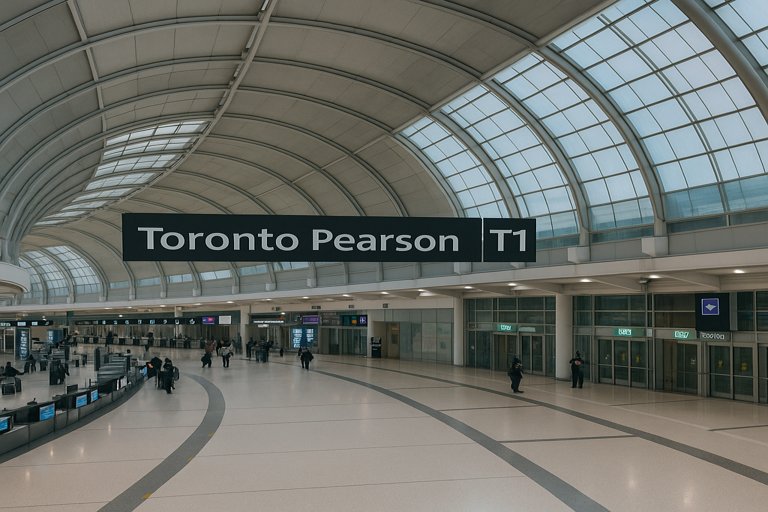Two women were detained at Toronto Airport with more than $1,000,000 in their suitcases
During the search, the passengers were found in possession of 982,000 Canadian Dollars and 186,000 Euros. They failed to submit a passenger customs declaration, despite being obligated to do so.

Two women arriving at Toronto Pearson International Airport were detained earlier this week after authorities discovered over one million dollars in undeclared cash hidden within their suitcases. The arrest occurred during a routine customs screening, which raised suspicions due to inconsistencies in their travel documentation and declared items.
According to officials from the Canada Border Services Agency (CBSA), the two passengers had just landed on a flight from Europe and initially gave no indication that they were carrying any large sums of money. However, during the standard screening process, officers noticed irregularities in the weight and structure of the women’s luggage.
Upon opening the suitcases for inspection, agents discovered multiple stacks of Canadian currency amounting to approximately 982,000 CAD. In addition, bundles of euros totaling roughly 186,000 EUR were also recovered. The bills were concealed within layers of clothing, false compartments, and sealed envelopes.
Both individuals, whose names have not been released pending further investigation, failed to declare the large amounts of cash as required under Canada’s Proceeds of Crime (Money Laundering) and Terrorist Financing Act. Any traveler entering or leaving Canada must declare amounts of $10,000 or more in currency.
CBSA spokesperson Rebecca Leclerc stated that the seizure was among the largest in recent months and commended the attentiveness of border officers. 'The successful interception of this undeclared cash demonstrates the effectiveness of our risk-based approach at ports of entry,' she said during a press briefing.
Investigators are now working to determine the origin and intended use of the money. Preliminary evidence suggests that the two women may have been acting as couriers for a larger criminal organization, possibly involved in laundering illicit funds across international borders.
The RCMP has joined the investigation and is currently examining possible links to known money laundering networks operating between Canada and various European countries. Digital devices, travel itineraries, and communication records have been seized as part of the inquiry.
Legal experts note that while carrying large sums of cash is not inherently illegal in Canada, failure to declare it constitutes a serious offense and can lead to seizure, fines, and even criminal charges. The women are expected to face multiple counts of customs violations and may be charged under federal financial disclosure laws.
Travelers are routinely reminded by airport signage and in-flight announcements about the legal obligation to declare significant cash holdings. Despite these warnings, CBSA officers report a steady stream of undeclared currency incidents, often linked to organized criminal operations or tax evasion.
This case has reignited discussions about tightening cross-border cash controls and enhancing international cooperation to detect financial crime. Lawmakers have long debated whether the current $10,000 declaration threshold is sufficient to deter smuggling and illicit transfers.
In the meantime, the two women remain in custody while Canadian authorities process formal charges. Their court appearance is scheduled for later this month in a Toronto federal court, where prosecutors are expected to argue that the large quantity and concealment methods indicate deliberate intent to evade legal scrutiny.
As the investigation unfolds, officials emphasize the importance of transparency in cross-border financial activity. 'Canada takes financial integrity seriously,' said CBSA’s Leclerc. 'We will continue to enforce our laws to protect the safety and security of our borders.'